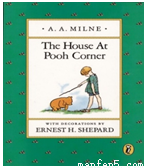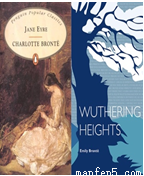题目内容
A group of frogs were traveling through the woods,and two of them fell into a pit(深坑).When the other frogs saw how____the pit was,they told the two frogs that they____as well wait to die.The two frogs ignored the comments and tried to jump____the pit with all their____.The other frogs kept telling them to____,and that they were as good as dead.Finally,one of the two frogs listened to what the other frogs said and____.He fell down and died.
The other frog continued to jump____and try his best.Once again,the crowd of frogs shouted at him to stop the ____and just die.He jumped even harder and finally____it.When he got out,the other frog said,"Didn't you____us?" The frog explained to them that he was a little____.He thought they were____him the entire time rather than advising him to stop the pain of struggle.
This story teaches us two____: First,there is the power of life and____in words.An encouraging word to someone who is____can lift him up and help him make it through.Second,a(n)____word to someone who is down can be what it takes to kill him.
Be careful of____you say.Speak positively to those who cross your path.The power of words is so great;it is ____hard to understand that an encouraging word can go such a(n)____way.Anyone can speak words that tend to rob(掠夺)another of the____to continue in difficult times.The individual who will take the time to encourage another is special.
1.A. deep B. wide C. dark D. shallow
2.A. must B. can C. might D. should
3.A. up of B. down from C. out of D. up from
4.A. energy B. power C. weight D. strength
5.A. try B. stop C. continue D. jump
6.A. gave in B. gave off C. gave up D. gave away
7.A. near B. hard C. fast D. far
8.A. breath B. pain C. swim D. relief
9.A. made B. had C. took D. got
10.A. hear B. tell C. see D. cheat
11.A. blind B. deaf C. dumb D. disabled
12.A. blaming B. threatening C. criticized D. encouraging
13.A. classes B. theories C. lessons D. proverbs
14.A. death B. happiness C. sadness D. love
15.A. out B. short C. down D. strong
16.A. positive B. enthusiastic C. destructive D. challenging
17.A. why B. when C. that D. what
18.A. sometimes B. sometime C. sometime D. sometimes
19.A. tough B. short C. easy D. long
20.A. body B. spirit C. patience D. intelligence
 天天向上一本好卷系列答案
天天向上一本好卷系列答案 小学生10分钟应用题系列答案
小学生10分钟应用题系列答案


